Healthy youthful skin is elastic, resilient, and able to snap back into place when we pinch and stretch it. Many factors, such as aging and sun exposure, diminish its firmness and elasticity and cause it to sag and wrinkle.
Fortunately, there are ways to counteract the effects of these factors and delay the onset of skin aging signs.
This article looks at 25 effective ways to improve skin elasticity and explains how to use them for the best results.
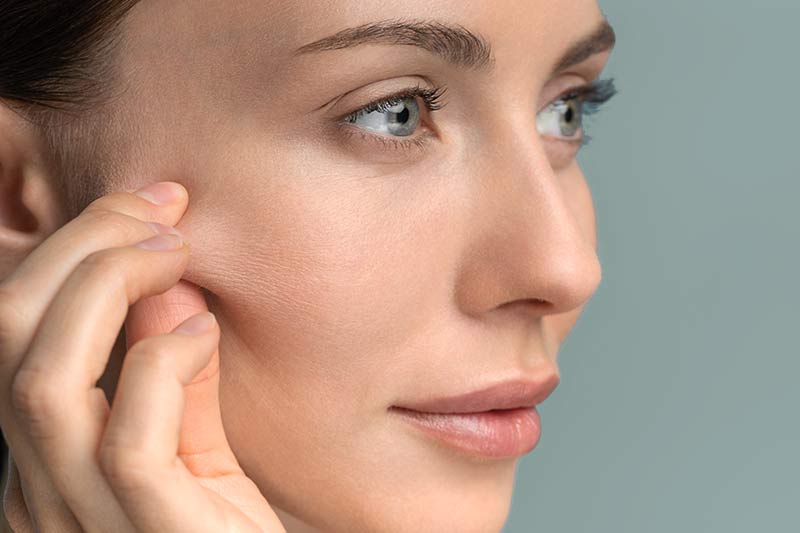
What Causes Loss of Skin Elasticity?
Loss of skin elasticity occurs because of the decline in collagen and elastin production. These two important skin-building proteins naturally break down with time, but other factors – many of which we can control and reverse - cause premature degradation of collagen and elastin fibers.
Internal Factors
Internal factors contributing to the loss of skin elasticity include:
- Aging
- Genetics
- Medical conditions
- Hormonal imbalance
- Weight fluctuations
- Stress
Note: Learn more details on how are stress and skin related, what are the most common skin conditions caused by stress and how to treat them.
External Factors
External factors leading to a decline in skin elasticity include:
- Sun exposure
- Pollution
- Smoking
- Alcohol
- Lack of sleep
- Nutritionally poor diet
- Inadequate skin care
- Lack of exercise
We can reverse the aging effects of many external factors by changing our lifestyle habits and using adequate products and treatments that protect the skin.
25 Ways to Improve Skin Elasticity
The following is a comprehensive list of the ways to preserve existing collagen and elastin, enhance their synthesis, and improve other parameters that contribute to skin elasticity.
1. Exercise
Health experts recommend regular exercise for all spheres of wellbeing, from reducing the risk of severe diseases to improving mood and libido. Regular exercise also reflects on the state of our skin. It stimulates fibroblasts to produce more collagen and elastin necessary for firm and youthful-looking skin. One of the healthiest ways to tighten loose skin is to build muscle through strength training exercises.
2. Sleep
Sleep deficiency triggers various health issues, including hormonal imbalances, which can lead to collagen breakdown and weaker skin barrier function. The so-called “beauty sleep” is not a myth but an important ally in the effort to conserve collagen and maintain skin elasticity. It involves at least seven hours of sound, uninterrupted sleep at night, preferably starting before midnight.
3. De-stress
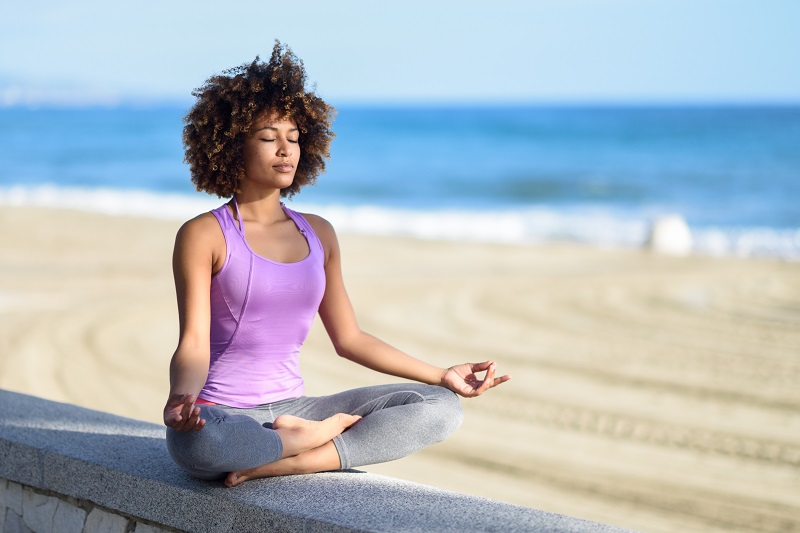
Chronically high cortisol levels caused by stress disrupt skin barrier function, reducing the quantity and quality of dermal collagen. Engaging in relaxation techniques and stress-relieving hobbies can positively affect our overall health, including the state of our skin. Effective de-stressing techniques include meditation, yoga, a brisk walk, and spending time in nature.
Note: Check out our article if you want to find out how to lower cortisol levels
4. Eat More Antioxidant-Rich Foods
Antioxidants help with various skin concerns thanks to their role in inhibiting free radicals and UV radiation that degrade the skin’s structural proteins. Vitamins C, E, and A are the most powerful antioxidants in skin care, but an antioxidant-rich diet also helps stimulate collagen synthesis and provide anti-aging effects. The best food sources of antioxidants include:
- Fruits, such as berries, lemon, kiwi, grapefruit
- Vegetables, such as legumes, leafy greens, tomatoes, bell peppers
- Whole grains, including brown rice, oats, quinoa
- Nuts, especially walnuts, pecans, Brazil nuts
5. Quit Smoking
Nicotine accelerates the breakdown of skin-building proteins, leading to premature aging skin – wrinkles, dryness, and saggy skin. People who stop smoking typically find their complexion becomes smoother and tighter after several weeks due to improved circulation and delivery of oxygen and nutrients to skin cells.
6. Limit Sun Exposure
UV radiation is the leading external contributor to skin aging. It induces an immediate inflammatory response (sunburn) and has a delayed skin aging effect, damaging skin cell DNA over time. The best way to maintain the skin’s health and a youthful appearance is to avoid the sun in peak hours (10 – 4 PM), wear protective clothing, and always apply sunscreen.
Note: Find out how to choose a sunscreen for the best protection.
7. Vitamin B3
Vitamin B3 (niacinamide) is a superstar among B complex vitamins when it comes to skin benefits. It is found in many skincare products to increase water retention, reduce hyperpigmentation, balance sebum production, and soothe inflammation. User experience shows products with niacinamide help firm, smooth, and brighten the skin.
8. Collagen Supplements
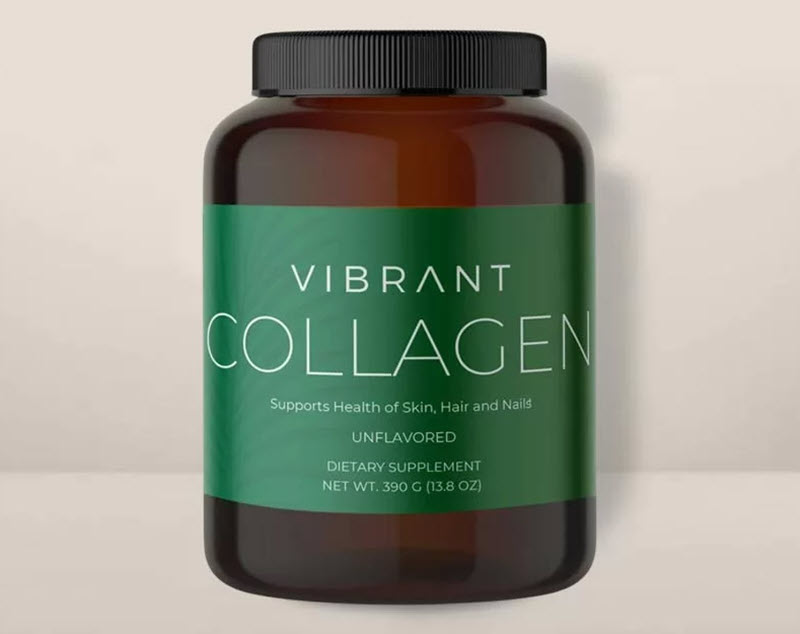
Collagen supplements are increasing in popularity as they provide a quick way to build more collagen and improve skin elasticity. They are available in pill, powder, or liquid form and can easily be integrated into a daily meal plan.
The Vibrant Skin Bar team recommends their Vibrant Collagen because the patented peptide formulation is backed by clinical research and proven to help support collagen synthesis and improve skin health. *
* These statements have not been evaluated by the Food and Drug Administration. This product is not intended to diagnose, treat, cure, or prevent any disease.
9. Retinol and Retinoids
Retinoids are potent vitamin A-based products with anti-aging properties, enhancing collagen production and skin cell turnover. Retinol is a type of retinoid commonly used in cosmetics to repair damage to the skin and make it firmer and plumper. These products can cause increased sun sensitivity and irritate the skin, so skin experts advise caution and the gradual introduction of retinol products into your nighttime skincare regimen.
Note: Retinol is typically used as an active ingredient in serums and creams. Discover the differences between a retinol serum and cream and why they matter.
10. Hyaluronic Acid
Hyaluronic acid is a naturally occurring component in our bodies with a high water-retention capacity, making the skin well-hydrated, plump, and elastic. Its levels decline with age, causing the skin to lose elasticity and glow. The best way to preserve the body’s natural hyaluronic acid and increase reserves is to use moisturizers and serums with hyaluronic acid and take HA supplements.
Note: Discover the best moisturizers for aging skin.
11. Genistein
Genistein is a soy-derived compound that provides many anti-aging benefits, including reduced photodamage and improved skin elasticity. A study focusing on its effects on menopausal women showed the compound binds to estrogen receptors, repairing and improving skin changes that follow declining estrogen, including skin laxity. Genistein can be taken as a dietary supplement or used in skincare products.
12. Cocoa Flavanols

Cocoa flavanols, such as catechins and epicatechins, provide potent antioxidant protection. One study showed they may help prevent photo-aging and improve skin elasticity. It is best to use high-flavanol cocoa products, such as dark chocolate, black and green tea, or topically apply creams and serums with these ingredients.
13. Dexpanthenol Cream
Dexpanthenol is a form of pantothenic acid, a component of coenzyme A. When used topically, it stimulates fibroblast activity and helps retain water, improving skin texture and elasticity. It is typically used to soothe dry, itchy, irritated skin and heal wounds.
14. Plant Stem Cells
Plant stem cells have impressive anti-aging properties, confirmed in scientific literature. They stimulate fibroblasts to produce collagen, helping to repair damaged skin. Kinetin, found in plant stem cells, is a potent substance that reduces oxidative stress in cells and helps them regenerate. Other observed cosmetic effects include increasing the flexibility of the top skin layer and protecting it from UV radiation.
Plant stem cells can be found in skincare ingredients such as edelweiss, gotu kola, date palm, peony, and white lily.
15. Growth Factors
Growth factors are proteins secreted by skin cells, such as fibroblasts and keratinocytes. Their role is to increase collagen and elastin synthesis, repairing the skin and improving its firmness and elasticity.
The Vibrant Skin Bar team recommends Osmosis MD StemFactor as one of the most technologically advanced and effective growth factor serums. It stimulates fibroblasts to produce more growth factors, helping to improve all aspects of skin aging.
16. Massage
Massage is a centuries-old technique for relaxation and wellbeing. It is a popular rejuvenation treatment to improve circulation, increase nutrient delivery to cells, expel toxins, and stimulate fibroblasts to produce more collagen. Skin experts recommend regular body and facial massage sessions for enhanced skin elasticity, among other benefits.
Note: Learn how lymphatic drainage massage can help tighten and rejuvenate the skin.
17. Chemical Peels
A chemical peel involves applying a chemical solution to the skin to exfoliate damaged skin on the surface and penetrate dermal layers to induce collagen and elastin synthesis. Depending on the type of chemical peel – light, medium, or deep – it can address various skin conditions, including sagging skin.
18. Facials
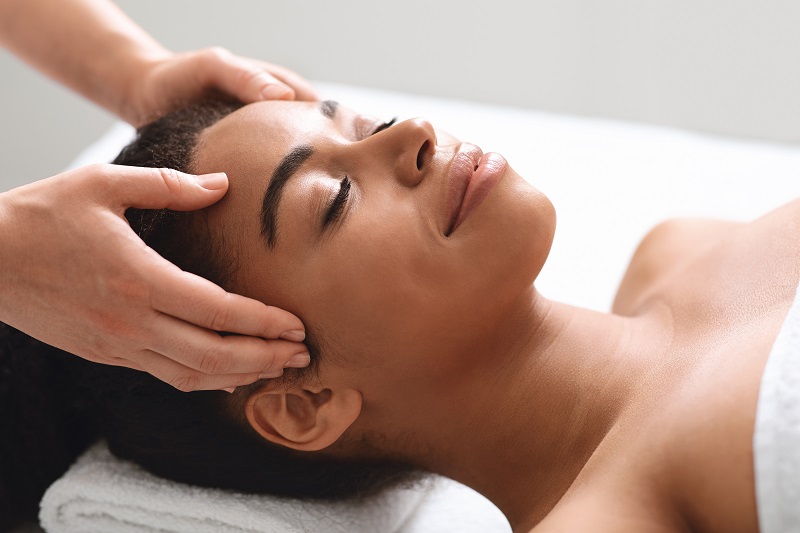
Facial treatments involve cleansing, massaging, and treating the face with various skincare products to remove impurities, improve circulation, and administer potent ingredients that nourish and repair the skin. They range from gentle facials with natural ingredients to treatments that use electrical devices, LED light therapy, and powerful chemical solutions.
Note: Learn more about holistic facials, how they differ from other facial treatments, and what benefits to expect.
19. Dermal Fillers
Dermal fillers are injectable treatments that provide volume to thinning, saggy skin. Two popular brands, Juvéderm and Restylane, instantly plump the skin using hyaluronic acid. On the other hand, Sculptra and Radiesse contain poly-L-lactic acid and calcium hydroxylapatite, respectively, to gradually strengthen and firm the skin by stimulating collagen production.
20. Platelet-Rich Plasma Injections
Platelet-rich plasma (PRP) injections are natural fillers because they only contain the patient’s blood. The blood sample is spun in a medical centrifuge to obtain a high concentration of platelets full of growth factors. These growth factors activate fibroblasts to synthesize collagen and promote tissue remodeling.
21. Microneedling
Microneedling is among the best non-surgical treatments for loose, mature skin. It uses a device with tiny needles that cause controlled damage to the skin’s top layer, stimulating collagen and elastin production. After 4-6 sessions, the skin is visibly tighter and smoother, and the results can last for years.
Note: Skin experts like to pair microneedling with PRP for the best skin rejuvenating effects. Learn all about the treatment!
22. Laser Treatment
A laser device sends light waves to the target area, which converts to heat under the skin and triggers the body’s natural healing process and increases collagen and elastin production. Lasers are very effective at tightening the skin and providing long-lasting results.
Note: Find out how BBL laser can help with sagging skin, wrinkles, large pores, and other aging skin concerns.
23. Body Contouring
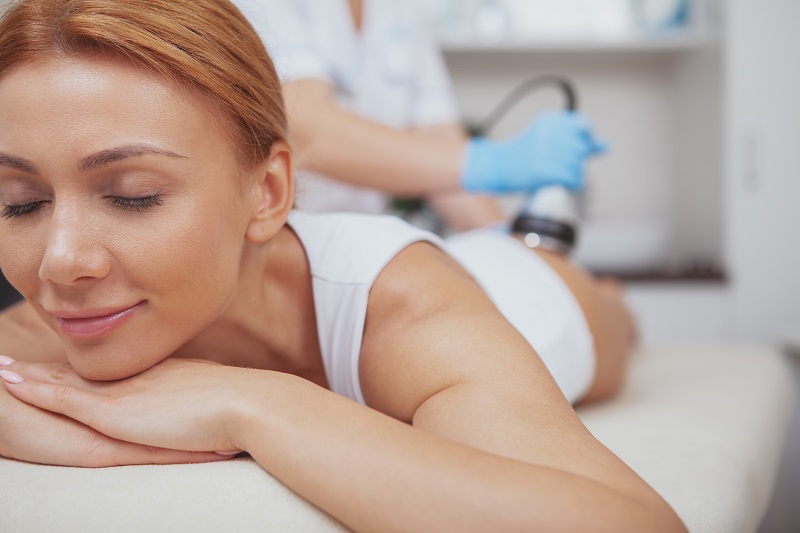
Body contouring treatments, such as CoolTone, improve muscle tone and provide a more defined physique. CoolTone uses a device that sends electromagnetic waves to targeted muscles, causing them to contract faster than they would during a muscle-building workout. The treatment also improves blood flow and enhances collagen structure, resulting in visibly toned muscles and firmer skin.
24. Sofwave
Sofwave is a multifold treatment targeting various skin issues. It uses novel ultrasound technology to regenerate collagen, elastin, and hyaluronic acid, and tighten lax skin on the legs, buttocks, face, and neck. It also effectively reduces cellulite, softens wrinkles, and lifts the eyebrows.
25. PDO Threads
PDO threading is a popular non-surgical alternative to facelifts. The treatment builds volume and lifts sagging skin with biodegradable medical sutures that are quickly inserted into the skin and don’t require downtime. PDO threads immediately plump the skin but also induce collagen production, gradually enhancing the treatment’s rejuvenating effects.
How Long Does It Take for Skin to Restore Lost Elasticity?
The time it takes the skin to restore lost elasticity depends on the product and treatment used. Most of the above solutions rely on building collagen and elastin to strengthen the skin’s structure, which may take several months. Cosmetic treatments typically provide instantly visible results, while improved lifestyle changes and skincare products take more time to reflect on the skin.
Conclusion
Declining collagen and elastin are the root cause of the appearance of aging signs. The best way to restore these proteins is to adopt a healthier lifestyle, use adequate skincare products, and treat yourself to anti-aging cosmetic treatments from time to time.
Schedule a free consultation with our medical professionals at Vibrant Skin Bar for an analysis of your skin and recommendations on how to achieve your beauty goals.


